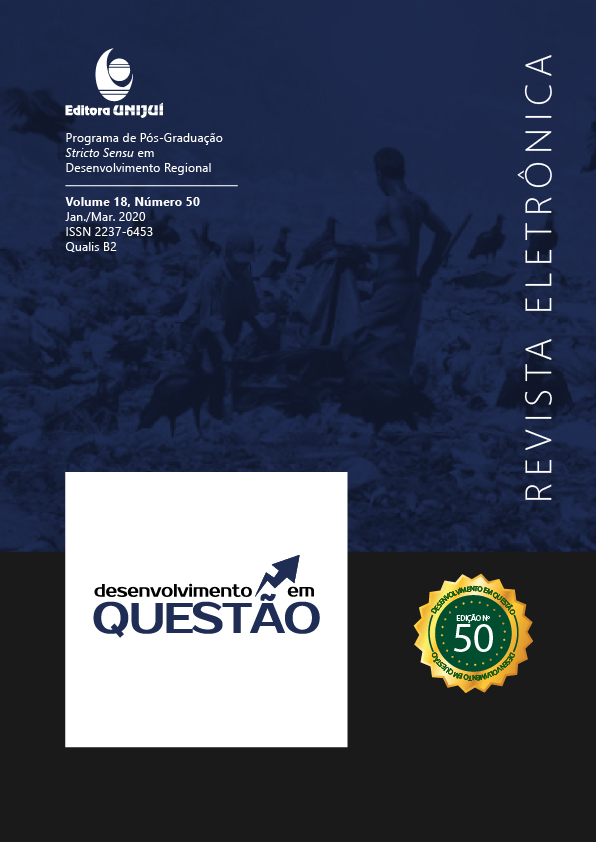THE NATIONAL PROGRAM FOR STRENGTHENING FAMILY AGRICULTURE IN BRAZIL: ANALYSIS OF EVOLUTION AND CONCENTRATION BETWEEN 1999 AND 2017
DOI:
https://doi.org/10.21527/2237-6453.2020.50.109-128Keywords:
Public Policy, Family farming, Credit, Rural DevelopmentAbstract
The Brazilian State legitimated late family farming as a social category, simultaneously with the constitution of the National Program for Strengthening Family Agriculture (PRONAF) in the mid-1990s. Since its inception, PRONAF has passing transformations aimed at credit and the target audience. The present study intends to analyze the evolution and distribution of the resources of the National Program for Strengthening Family Farming between the Brazilian regions from 1999 to 2017. Specifically, it was sought: a) present the program; b) identify the value of resources distributed among the Brazilian regions; and c) highlighting the main obstacles and challenges of the program. Methodologically the research is classified as qualitative, from the deductive method. Secondary data were sought from the Central Bank of Brazil (BCB). Bibliographic research was also used. The main results highlight the inequality and concentration in the distribution of credit, which was grouped in the Southern Region between 1999 and 2002. Between 2003 and 2006 resources were better distributed and the South Region decreased its participation with increased participation of the Northeast, Southeast and North regions. Since 2007, resources have been re-concentrated in the Southern Region. The program has again promoted modern agriculture, being accessed basically by commodity producers in capitalized regions. PRONAF limitations include selectivity in favor of capitalized farmers, commodity producers, regional concentration of credit and low access to more impoverished households.
Downloads
Published
How to Cite
Issue
Section
License
By publishing in Revista Desenvolvimento em Questão, authors agree to the following terms:
All works are published under the Creative Commons Attribution 4.0 International License (CC BY 4.0), which allows:
Sharing — to copy and redistribute the material in any medium or format;
Adaptation — to remix, transform, and build upon the material for any purpose, even commercially.
These permissions are irrevocable, provided that the following terms are respected:
Attribution — authors must be properly credited, a link to the license must be provided, and any changes made must be indicated.
No additional restrictions — no legal or technological measures may be applied that legally restrict others from doing anything the license permits.
Notices:
The license does not apply to elements that are in the public domain or covered by legal exceptions.
The license does not grant all necessary rights for specific uses (e.g., image rights, privacy, or moral rights).
The journal is not responsible for the opinions expressed in the articles, which are the sole responsibility of the authors. The Editor, with the support of the Editorial Board, reserves the right to suggest or request modifications when necessary.
Only original scientific articles presenting research results of interest that have not been previously published or simultaneously submitted to another journal with the same purpose will be accepted.
Mentions of trademarks or specific products are intended solely for identification purposes and do not imply any promotional relationship by the authors or the journal.
License Agreement (for articles published from 2025 onward): Authors retain the copyright to their article and grant Revista Desenvolvimento em Questão the right of first publication.











